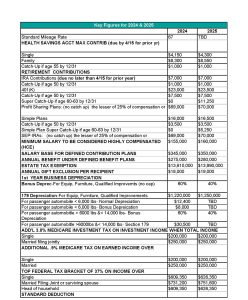If you are a real estate investor, you probably know there are several options when choosing how to invest in a property. However, there is an investment vehicle often unknown to investors: the Delaware Statutory Trust (DST).
DSTs: great for long-term, hands-off investing
If you want an investment where you know the plans and goals of the investment, are comfortable not being in control or making any hands-on decisions, and are committed to the long-term investment, DSTs can be a great fit for you.
Investing through a DST often has substantial benefits over other forms of real property ownership because its structure can benefit the specific needs of certain investors. It can be a direct investment or can also be replacement property in a §1031 exchange. DST offerings also gives you an opportunity to own a different class of property than you otherwise might be able to afford than by acquiring it alone. Often DST deals are large multi-family properties, class A office buildings, and triple net leases with large national retail corporations.
How DSTs work with 1031 exchanges
When using a DST investment as replacement property for a §1031 exchange, it offers some advantages over choosing other replacement property. For example, you might be looking to replace a property, but do not want to commit additional investment funds on the new purchase.
A DST investment is the perfect option for such a scenario. Prior to or at the time of sale of the relinquished property, the clock begins ticking on the deadline to both identify (45 days from sale) and close on the acquisition of replacement property (180 days from sale). You are not only tasked with choosing the right property to acquire, and can identify a few options, but ultimately must close within the 180 days.
DST offerings are generally on a specified timeline for closing and you can typically close within a matter of days once you commit to the investment. Not only that, but whatever funds that are available from the sale to be reinvested can generally be invested in the DST to the penny. You simply receive a fractional ownership percentage that corresponds to the exact amount of capital invested in the DST deal. Under this scenario, you can confidently sell a property and quickly close on replacement property without the stress and worry that the exchange will fail, potentially resulting in thousands of dollars of tax.
Most often, DST offerings are large acquisitions with up to 499 owners. This limit is typically set by the DST sponsor. They can also be tailored to a specific investor depending on their investment size.
Things to look out for when using DSTs
One pitfall to watch out for is selecting the right DST investment. When selecting a property, one must consider the location of the rental property. For example, if a California resident sells California real property in an exchange, then acquires a fractional interest in a DST offering that owns multiple retail store locations in numerous states, this can unexpectedly, and in some cases, needlessly increase the complexity of the investor’s personal tax returns.
A smaller investor might go from filing in their resident state to filing in 8 or more states depending upon the DST’s property locations. This can add significant cost to the tax preparation fees. If the size of the investment is somewhat smaller, you must justify the cash flow resulting from the new investment against the increased professional fees for tax compliance.
If you are considering a §1031 exchange of your real property, a DST investment may meet your needs and solve a few dilemmas with timing and funding. As with any investment, the DST is not without risk. DSTs are highly regulated, must comply with IRS Rev. Rul. 2004-86 and meet lender requirements, along with numerous other benefits to ownership.
If you have questions or concerns about whether a Delaware Statutory Trust is right for you, give Pam Bustos a call at (714) 569-1000.





